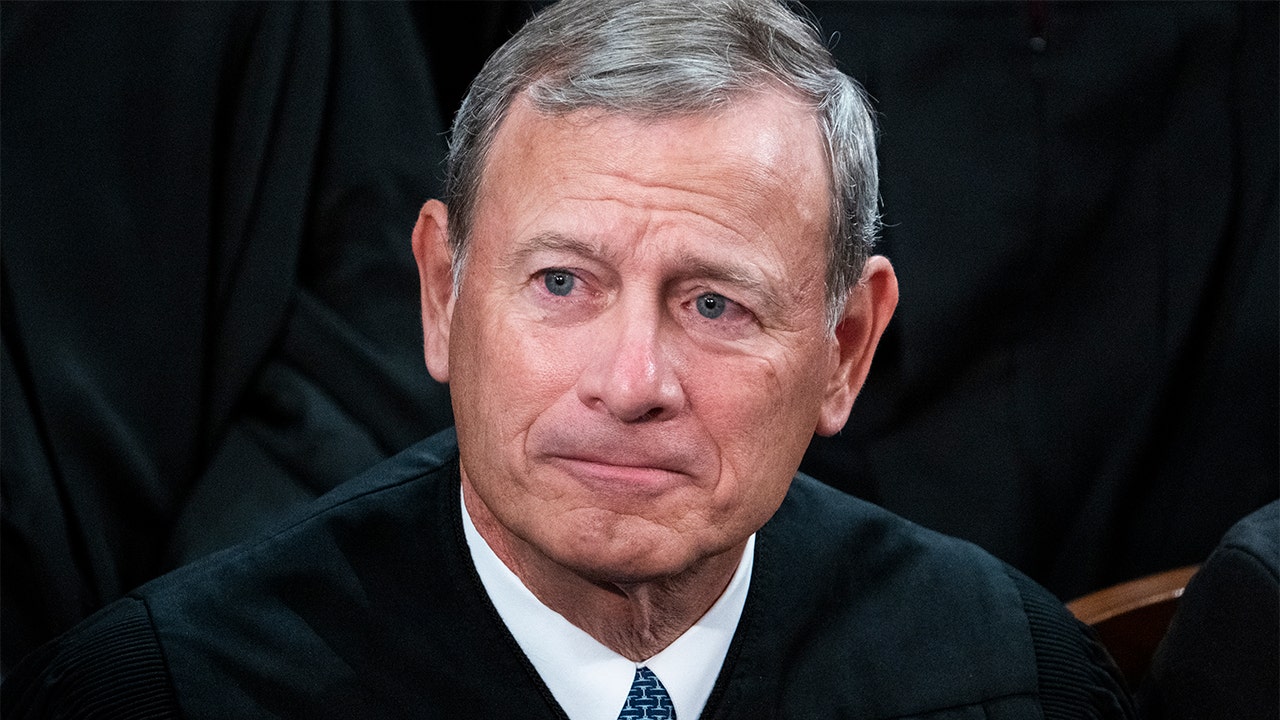Alito And Roberts' Supreme Court Legacy: A Look Back

Table of Contents
Justice John Roberts' Chief Justiceship: A Balancing Act
Chief Justice John Roberts has navigated a deeply divided Supreme Court, striving to maintain a sense of institutional legitimacy amidst increasing partisan polarization. His approach, often described as a balancing act, has involved both upholding precedent and occasionally casting swing votes in pivotal cases. This has led to both praise for his attempts at moderation and criticism for perceived strategic maneuvering.
- Upholding the Affordable Care Act: Roberts' pivotal vote in National Federation of Independent Business v. Sebelius (2012), upholding the Affordable Care Act, showcased his ability to find common ground, albeit with a controversial interpretation of the law.
- Occasional Swing Votes: In several key cases, Roberts has emerged as a swing vote, often siding with the more conservative justices, but occasionally offering a crucial deciding vote for more liberal outcomes. This has led to accusations of inconsistency in his judicial philosophy.
- Criticism of his Approach: Critics argue that Roberts' pursuit of institutional legitimacy has come at the expense of consistent judicial principles, leading to unpredictable outcomes and eroding the Court's perceived neutrality.
- Examples of Cases: Beyond the ACA case, examining Roberts' opinions in cases involving voting rights, environmental regulations, and religious freedom reveals a complex and often unpredictable judicial philosophy.
Justice Samuel Alito's Conservative Jurisprudence: Landmark Decisions and Their Impact
Justice Samuel Alito’s conservative judicial philosophy has significantly shaped the Roberts Court’s decisions. His opinions consistently reflect a strict constructionist approach, impacting areas like abortion rights, campaign finance, and religious freedom.
- Dobbs v. Jackson Women's Health Organization: Alito's majority opinion in Dobbs (2022), overturning Roe v. Wade, is arguably his most impactful decision, significantly altering the legal landscape surrounding abortion access in the United States and sparking widespread national protests and debate. The long-term consequences of this ruling are still unfolding.
- Second Amendment Cases: Alito has consistently sided with a broad interpretation of the Second Amendment, leading to rulings that have expanded gun rights.
- Religious Freedom: In cases involving religious freedom in the public sphere, Alito has often sided with religious claimants, leading to rulings that have broadened religious exemptions from certain laws.
- Criticism of his Philosophy: Critics argue that Alito's strict constructionism ignores evolving societal norms and values, resulting in decisions that are out of step with public opinion and potentially detrimental to minority rights.
The Roberts Court's Shifting Ideological Landscape: The Impact of Alito's and Roberts' Influence
The Roberts Court's ideological balance has undeniably shifted towards a more conservative stance during Roberts' chief justiceship. Alito's consistently conservative opinions have significantly contributed to this shift.
- Increased Conservative Influence: The appointments of Justices Neil Gorsuch, Brett Kavanaugh, and Amy Coney Barrett further solidified the conservative majority, amplifying the influence of justices like Alito and Roberts.
- Impact of Recent Appointments: These appointments have resulted in significant changes in the Court's approach to various issues, including abortion, gun rights, and religious freedom.
- Long-Term Consequences: The long-term consequences of these shifts are far-reaching, affecting numerous aspects of American society, including access to healthcare, voting rights, and environmental protection.
- Comparison to Previous Courts: A comparison of the current Court to previous Courts reveals a stark ideological shift, making it one of the most conservative in recent history.
Public Perception and the Legacy of Alito and Roberts
The public reaction to the Roberts Court's decisions has been sharply divided, reflecting the polarization of American society. The Court's decisions have become intensely politicized, fueling debates about its role in American democracy.
- Public Opinion Polls: Public opinion polls consistently show a significant portion of the population disapproves of some of the Court's recent decisions, particularly Dobbs v. Jackson.
- Media Coverage: Media coverage of Supreme Court decisions has intensified, often amplifying the political and ideological dimensions of these rulings.
- Judicial Appointments and Confirmation: The process of judicial appointments and Senate confirmation hearings has become increasingly contentious, reflecting the high stakes involved in shaping the Court's composition and future direction.
- Implications for the Future of American Law: The ongoing debate surrounding the Court's decisions raises critical questions about the balance of power in American democracy and the future of legal interpretations.
Conclusion
The Alito and Roberts' Supreme Court Legacy is one of significant change and enduring debate. Their decisions have profoundly impacted American law and society, leading to both praise and strong criticism. The long-term implications of their judicial philosophies, particularly concerning issues like abortion rights and religious freedom, will continue to shape the nation for years to come. To understand the full scope of their impact, we urge you to delve deeper into their key opinions, research specific cases, and explore further analysis of Alito and Roberts' Supreme Court Legacy by consulting resources such as the Supreme Court Database, legal journals, and reputable news sources. Understanding this legacy is critical to engaging in informed discussions about the future of American jurisprudence.

Featured Posts
-
 Philippines New Missile System A Deep Dive Into The Us Typhon Deployment
May 20, 2025
Philippines New Missile System A Deep Dive Into The Us Typhon Deployment
May 20, 2025 -
 Nyt Mini Crossword Solutions For March 16 2025
May 20, 2025
Nyt Mini Crossword Solutions For March 16 2025
May 20, 2025 -
 F1 Analyysi Hamiltonin Ferrarin Vaihtoehto Ja Sen Seuraukset
May 20, 2025
F1 Analyysi Hamiltonin Ferrarin Vaihtoehto Ja Sen Seuraukset
May 20, 2025 -
 Investing In Quantum Computing Stocks In 2025 Rigetti And Ion Q
May 20, 2025
Investing In Quantum Computing Stocks In 2025 Rigetti And Ion Q
May 20, 2025 -
 Robin Roberts And Gma Layoffs Understanding The Getting Fancy Remark
May 20, 2025
Robin Roberts And Gma Layoffs Understanding The Getting Fancy Remark
May 20, 2025
Latest Posts
-
 Damaging Winds How Fast Moving Storms Impact Your Area
May 20, 2025
Damaging Winds How Fast Moving Storms Impact Your Area
May 20, 2025 -
 Ftv Lives A Hell Of A Run A Deep Dive Into The Story
May 20, 2025
Ftv Lives A Hell Of A Run A Deep Dive Into The Story
May 20, 2025 -
 Investigation Into Washington County Breeder Following 49 Dog Removal
May 20, 2025
Investigation Into Washington County Breeder Following 49 Dog Removal
May 20, 2025 -
 A Cyclists Dedication Scott Savilles Ragbrai And Commute Experiences
May 20, 2025
A Cyclists Dedication Scott Savilles Ragbrai And Commute Experiences
May 20, 2025 -
 The Power Of Resilience Protecting Your Mental Health
May 20, 2025
The Power Of Resilience Protecting Your Mental Health
May 20, 2025
